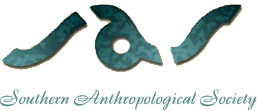Southern Anthropologist
Abstract
During the 1920s and ‘30s, Washington and Lee University (W&L) biology students visited local families suspected of “degeneracy.” At the direction of their professor and with the support of social workers, physicians, and other authorities, students recorded generational histories as well as such variables as age, material conditions, educational level, employment, illnesses, and supposed proclivities toward promiscuity, alcoholism, illegitimacy, “idiocy,” and “feeblemindedness.” W&L Special Collections and Archives contains 25 of these eugenics term papers. Together they document ways that young White men – many from well-to-do southern families – learned or affirmed that their social position was a function of superior “germ plasm” rather than environmental factors or good fortune. Charged with taking positions about whether particular individuals should be subject to compulsory sexual sterilization by the state, W&L students were encouraged to understand themselves as “future men in affairs,” rightfully helping to determine who should be allowed representation in coming generations. Their education both reflected and reinforced inequalities of class, race, and gender, all imagined as biological and inevitable. This analysis highlights ways that eugenics education fostered understandings of “us” and “them”: the worthy and the unfit both biologically and socially, which were understood to reflect the same innate hierarchy. The conclusion suggests a through line, showing how ingroup-outgroup dynamics run through eugenic teachings to the current day as debates still rage about who should be empowered to make decisions about reproduction, for example, or who belongs in college.
Relational Format
journal article
DOI
10.56702/SAOL7955/santh3801/2
Recommended Citation
Langhorne, Meg and Bell, Alison
(2023)
"Blood Will Tell: Eugenics Education at a Twentieth-Century Southern University,"
Southern Anthropologist: Vol. 38:
No.
1, Article 2.
DOI: 10.56702/SAOL7955/santh3801/2
Available at:
https://egrove.olemiss.edu/southern_anthropologist/vol38/iss1/2


